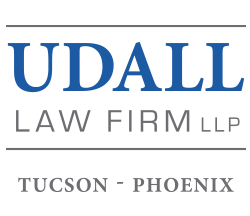
In Arizona, a lender on real estate has the option of using a Deed of Trust to secure the loan. Deeds of Trust were first adopted in Arizona in 1971. The Deed of Trust: Arizona’s Alternative to the Real Property Mortgage, 15 Ariz. L. Rev. 194 (1973).
Deeds of Trust are by far the most common instrument used to secure real property loans in Arizona. The biggest reason that the Deed of Trust is more popular is that a lawsuit isn’t required to foreclose them. Under Arizona law, a Mortgage (the other instrument that could be used) can only be foreclosed judicially. A lawsuit means serving the parties, obtaining a judgment approving the foreclosure, waiting for the sheriff’s sale to sell the property, and, finally, waiting out any redemption period (usually six months) the owner or others may have. It can be a long and expensive process.
Under a Deed of Trust, three parties are involved: the borrower, the lender, and the trustee. The trustee holds “bare” title to the property for the benefit of the lender and whose sole function is to initiate and complete a private foreclosure process as directed by the lender.
Following a default by the borrower, the lender can initiate the foreclosure by instructing the trustee to record, mail to parties in interest, publish and post on the property a Notice of Trustee’s Sale. The statutorily required waiting period is at least 90 days. The trustee then conducts a sale of the property at a Trustee’s Sale. This is a simplification of the process and the lender and trustee must follow the statutory scheme to validly sell the property, but it is much simpler and quicker than a judicial foreclosure.
Also, unlike following a judicial foreclosure, there is no right of redemption. There is, however, a right of reinstatement prior to the Trustee’s Sale to bring the loan current and reinstate the Deed of Trust with the borrower being required to pay the costs and expenses of the sale.
Deeds of Trust can also be foreclosed judicially, using the same process as mortgages. I have used this process where there is a title question (such as the priority of a lien) that needs to be settled by a court or to force a troublesome borrower to pay in full.
Jeffrey M. Neff is a real estate specialist certified by the Arizona Board of Legal Specialization. He has extensive experience in real property transactions and litigation including purchase, sale, lending, eliminating title problems, easements, quiet titles, partitions, foreclosure, workouts, real estate litigation and many other areas of commercial real estate.

